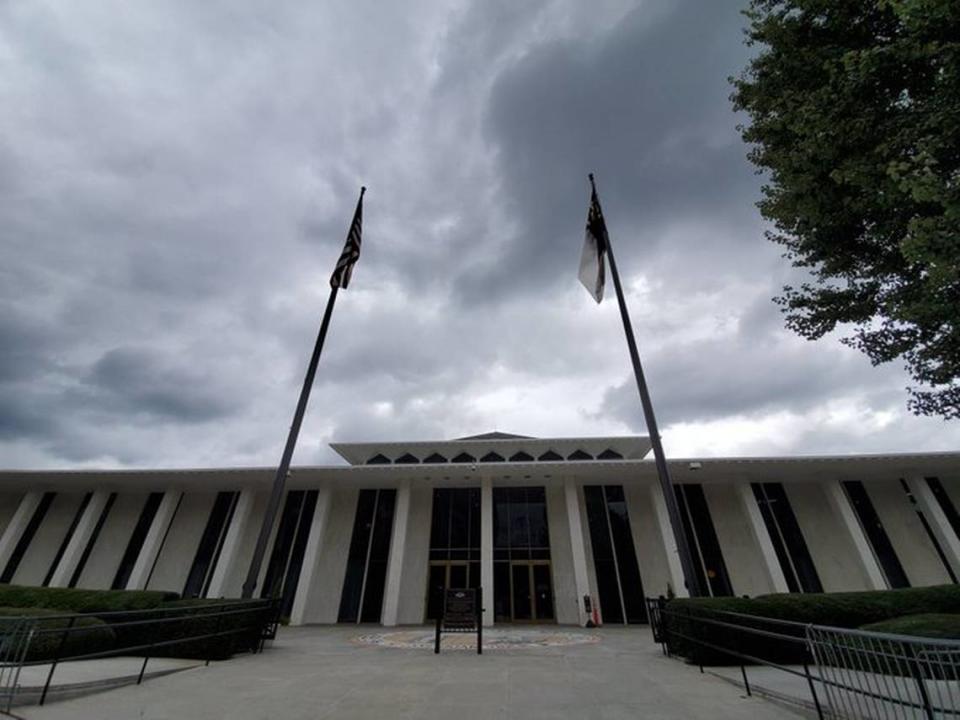NC lawmakers get ‘award’ for ‘outright contempt of the public’s right to know’
North Carolina lawmakers have received an award that likely won’t be going on their mantles.
The Society of Professional Journalists announced Saturday that it is giving its annual Black Hole Award to the North Carolina General Assembly “for violating the public’s right to know in the change of the state’s public records law.” SPJ gives the award each year during Sunshine Week to government institutions or agencies “for acts of outright contempt of the public’s right to know.”
Last year’s budget adopted by the Republican legislative supermajority exempted legislators from the state’s public records law. Lawmakers also exempted documents related to redistricting from public records law.
“The North Carolina law worsens a national patchwork of threats to state government transparency,” said SPJ Freedom of Information Committee member Howard Goldberg in a press release. “Legislatures in effect are exempting themselves from accountability to citizens who want to know how their laws are made and who is influencing their lawmakers.”
The News & Observer reached out Saturday to the offices of House Speaker Tim Moore and Senate leader Phil Berger for comment but has not yet received a response.
Lawmakers limit access to public info
The change in the public records law means it is now entirely up to lawmakers to decide what public records, if any, to reveal, The News & Observer previously reported.
To test how responsive lawmakers would be under the new law, The N&O requested emails from all 170 legislators for Sept. 19 — the day the budget impasse between the House and Senate was resolved.
Only 38 lawmakers, mostly Democrats, responded to the N&O’s request. More than 70% of lawmakers did not respond.
The governor and other members of the Council of State — officials who are elected statewide — are still subject to public records law.
The exemption of redistricting records is especially important, the N&O reported, because the N.C. Supreme Court ruled last year that partisan gerrymanders are allowed This means the Republican supermajority can draw lawmaker districts to suit their party, with some limitations.
Previously, SPJ noted, communications created during the legislative redistricting process became public once the new maps became law.

‘Unethical and shadowy governance’
The changes were panned by SPJ members. They also have been criticized by groups across the political spectrum, from the John Locke Foundation to the ACLU of North Carolina.
“The assembly netted a hat trick of unethical and shadowy governance by introducing a measure to hide their day-to-day decisions with taxpayer dollars, and the process for redrawing the election map that affects their party’s job security as well as the citizens’ right to choose, all within the annual budget, essentially holding it hostage for these provisions and disallowing the government to continue properly providing services,” said Sterling Cosper, SPJ Freedom of Information Committee co-chair.
North Carolina lawmakers are “shirking their moral and constitutional duties as public employees to inform their constituents what they are doing with taxpayer time and money while on the clock,” according to Tim Gruver, SPJ Freedom of Information Committee member.
Jodi Rave Spotted Bear, SPJ Freedom of Information Committee co-chair, said lawmakers have given new meaning to the state’s “First in Flight” slogan.
“State leaders now soar in the spirit of the Black Hole Award, an egregious recognition earned by trampling on the public right to information,” Rave Spotted Bear said in the news release.

